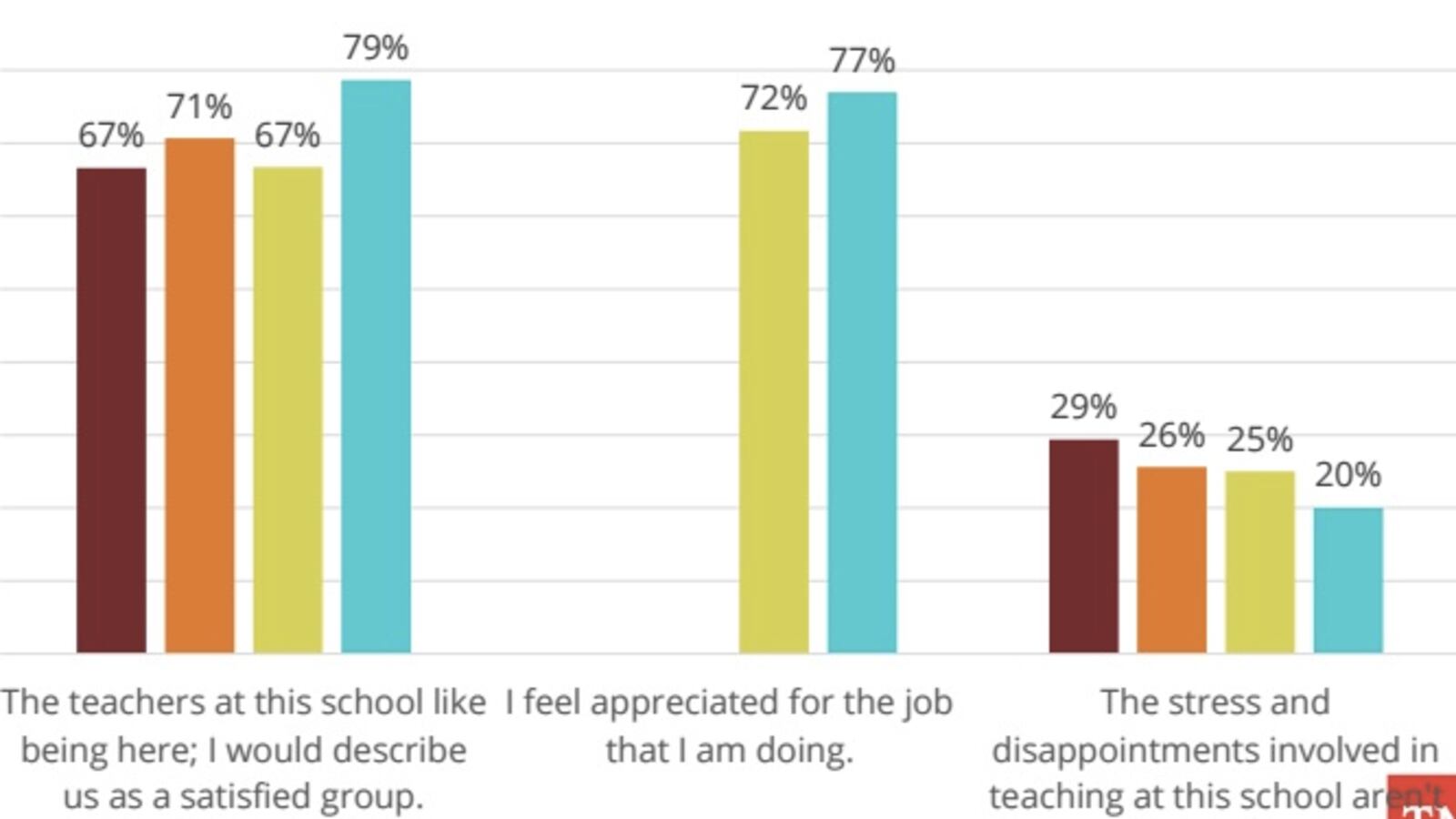Tennessee educators are warming to teacher evaluations, happier in their jobs than they’ve been in years past, and sick and tired of testing.
Those are the preliminary results of the 2015 Teacher and Principal Survey, which the Tennessee Department of Education presented on Thursday to members of the State Board of Education during their quarterly meeting in Johnson City.
More than half of Tennessee’s 64,000 teachers took the voluntary survey this spring, as did 2,000 school administrators.
The state has commissioned the survey each year since 2012 in partnership with Vanderbilt University’s Peabody College of Education. Department officials plan to release the survey’s final results in August. In the past, the survey was called the First to the Top survey.
Highlights from the preliminary results include:
- Teachers are happier than ever. This year saw a sharp uptick in the number of teachers who agreed with the statement: “The teachers at this school like being here; I would describe us as a satisfied group.” Seventy-nine percent agreed with the statement, compared with 67 percent in 2013-2014. Twenty percent of surveyed teachers agreed with the statement: “The stress and disappointments involved in teaching at this school aren’t worth it,” down from a quarter of surveyed teachers last year. However, about 150 Tennessee schools still had less than half of their teachers reporting being satisfied, said Nate Schwartz, director of education policy and research for the state, as he emphasized the need for continued improvement.
- More teachers than ever approve of the state’s teacher evaluations. There was also a rise in the number of respondents who thought teacher evaluations improved their craft and student learning. Those who thought evaluations led to better teaching increased from 54 percent last year to 68 percent this year; those who felt it helped student learning increased from 49 percent to 63 percent.
- Still, 32 percent of teachers think teacher evaluations are unfair — and state officials say that needs to change. The percentage of teachers who believe teacher evaluations are fair jumped from 58 percent to 68 percent, but Schwartz said that’s not good enough. “There is a decently large percentage of teachers who are saying that they feel evaluation isn’t fair,” he said. “That’s something we need to think about in the process we use to evaluate teachers … and what we can do to make clear to teachers how this process works so they feel more secure about it.”
- Administrators like evaluations more than teachers. Administrators viewed evaluations far more favorably than teachers, with 82 percent believing that the administrator evaluation process leads to improved student learning, and 87 percent believing their evaluations are fair. Nearly 80 percent of administrators thought that teacher evaluations are fair.
- Most teachers believe too much classroom time is devoted to test preparation and testing. Just as last year, 62 percent of surveyed teachers thought they spent too much time on standardized test prep, and 69 percent thought they spent too much time on actual tests.
- Despite other positive trends, teachers are less trusting of administrators. There was a 6 percentage point drop — from 87 percent to 81 percent — in teachers who said staff at their school feel comfortable raising issues and concerns that are important to them with school leaders. Still, there was a slight increase — from 82 percent to 84 percent — in teachers who felt their administrators were protecting much-valued instructional time.
- Teacher retention remains consistent. The percentage of teachers leaving the profession in Tennessee has only changed from 8.8 percent from the 2011-12 to 2012-13 school years, to 9.2 percent from 2013-14 to 2014-15.
- Teachers are split on whether they think Response to Instruction and Intervention is benefiting students. Sixty-five percent of elementary school teachers believed RTI, the program the state rolled out for the first time this year to screen students for problem areas in core academic subjects, is helping students learn. Fifty-nine percent of middle school teachers thought RTI benefited their students, and only 44 percent of high school teachers believed it would be beneficial. The program has been implemented in all elementary schools across the state, but not all high schools.
Did you take the survey? Do the results represent your experience? Let us know in the comments.


